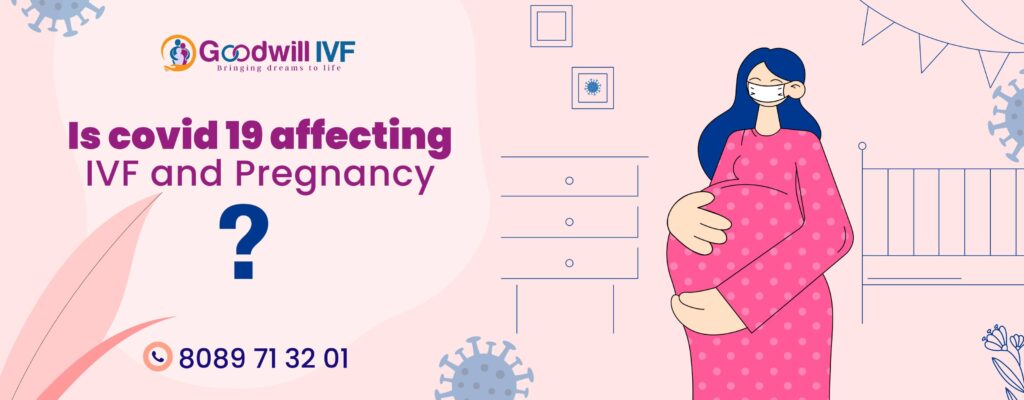Infertility is defined as the inability to conceive even after having frequent, unprotected sex for a year or longer. In many infertility cases, male infertility plays a partial role.
For natural reproduction, you must be able to make healthy sperm that can fertilize the egg and have an erection, and ejaculate so that the sperm reach the egg. The system functions well if genes, hormone levels, and environmental conditions are right.
There are several causes for male infertility. It is indeed stressful and frustrating to not be able to conceive a child. But many treatments are available to counter the problem of male infertility.
Symptoms
The main sign of male infertility is the inability to conceive a child. No other obvious signs or symptoms are visible. However, in some cases, there may be underlying problems like inherited disorder, hormonal imbalance, blockage in the passage of sperm, or dilated veins around the testicle.
Noticeable signs and symptoms may include:
Changes in sexual desire
Changes in virility, influenced by hormones can be indicative of fertility issues.
Pain or swelling in testicle area
Several conditions can lead to pain and swelling in the testicle area, many of which can be the reasons for infertility.
Erectile dysfunction
Reduced hormone levels can cause difficulty in maintaining an erection.
Difficulty in Ejaculation
Inability to ejaculate or small volumes of fluid ejaculated are signs of infertility.
Small, firm testicles
Testes store the sperm and so their health is important. Small and firm testicles are a matter of concern.
A lower than normal sperm count
If the sperm count is less than 15 million sperm per milliliter of semen or if the total sperm count is less than 39 million per ejaculate, then it indicates fertility problems.
Recurrent respiratory infections decreased facial or body hair, inability to smell, abnormal breast growth are some of the other symptoms.
Causes
Sperm disorders
The inability to produce sperm cells is called Azoospermia. The production of poor-quality sperm is called Oligospermia. Malformed sperm is sperm that cannot live long enough to fertilize the egg. Sperm may be immature, may be abnormally shaped, or may not be able to swim. In some cases, the count may be less. Sperm disorders may be caused due to the following conditions:
Varicoceles
A varicocele is a swollen vein in the scrotum. It impairs sperm growth and reduces sperm quality by blocking proper blood flow. Varicoceles keep the temperature in and around the testicles too high, affecting sperm formation, motility and function.
Infections and Inflammations
Inflammation of the epididymis, or testicles, and some sexually transmitted infections including gonorrhoea or HIV interfere with sperm production and sperm health. Childhood infections such as mumps is another cause for sperm disorders.
Immunologic Infertility
Some immune system cells called anti-sperm antibodies mistakenly identify sperm as harmful invaders and attempt to eliminate them, when they are on their way to the egg.
Hormone imbalances
Infertility can result from an abnormality affecting some endocrine glands like the hypothalamus, pituitary, thyroid, and adrenal glands. Low hormone levels lead to poor sperm growth.
Environmental factors
Extended exposure to certain industrial chemicals can cause low sperm count. Exposure to high doses of radiation can permanently reduce sperm production. Frequent use of saunas or hot tubs may temporarily decrease your sperm count. Wearing tight clothes, sitting for long periods, or working on a laptop for a long time may slightly reduce sperm production.
Lifestyle factors
Anabolic steroids, heavy use of alcohol, and smoking can also reduce sperm count. Obesity directly impacts sperm production.
Certain medications
Chemotherapy, some ulcer drugs, some arthritis drugs, testosterone replacement therapy, drugs for depression, etc. can impair sperm production and cause infertility.
Structural disorders
Failure of testicles to descend into the scrotum, during fetal development, leads to decreased fertility. The tubes that carry sperm can be obstructed due to injury from surgery, prior infections, trauma, or abnormal development. The absence of vas deferens can be another structural defect leading to male infertility.
Retrograde Ejaculation
In this condition, semen ejaculates backward into the bladder during orgasm instead of coming out of the penis. Cloudy urine after ejaculation or ‘dry’ ejaculate is signed.
Chromosome defects
Klinefelter’s syndrome, cystic fibrosis, and Kallman’s syndrome are inherited disorders that affect male fertility. These show changes in the number and structure of chromosomes.
Treatment
The number of treatment options for male infertility has expanded with the advent of modern technology. Treatments depend on the cause of infertility. These include:
Surgery
A varicocele can be surgically treated. A blocked vas deferens can be repaired. Vasectomies done earlier can be reversed. With the help of sperm retrieval techniques, sperm can be retrieved directly from the testicles or epididymis.
Treatment for sexual intercourse problems
Erectile dysfunction or premature ejaculation can be improved by medications or counseling.
Hormone therapy
Hormone replacement or medications are recommended in cases of hormonal imbalances.
Lifestyle changes
Eat healthy food and maintain healthy body weight. Exercise regularly. Stop or reduce the use of alcohol, quit smoking, and stop using illicit drugs.
Assisted Reproductive Technology(ART)
ART treatments involve the following techniques:
Intrauterine Insemination (IUI)
Sperm are placed into the uterus through a catheter. This works good for low sperm count, sperm motility issues, retrograde ejaculation etc.
In Vitro Fertilization (IVF)
The ovaries are stimulated to produce multiple eggs. Many mature eggs are retrieved. The egg and sperm are combined in a lab. The fertilized embryo is placed in the uterus. This benefits infertility due to low sperm count.
Intracytoplasmic Sperm Injection (ICSI)
It has revolutionized the treatment of male infertility. A single sperm is injected into the egg. It is used when the semen quality is poor or if there is no sperm in the semen.
Goodwill IVF Treatment Center, the Male Infertility Treatment Center in Malappuram offers top-notch procedures to treat male infertility. Our caring team of experts at Goodwill Male Infertility Center, Kozhikode is also always ready to help you with your health concerns.


